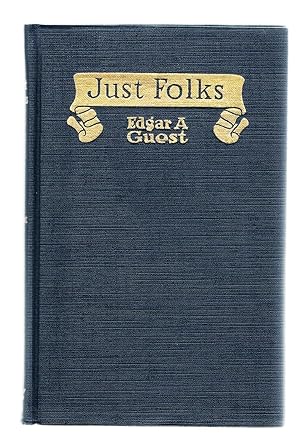My Books and I
byMy Books and I begins with a quiet, familiar warmth, like stepping into a room where trusted friends await. The narrator speaks of books not as objects, but as living companions—each one ready to meet him wherever he stands emotionally. Some days require a light laugh, and Bill Nye is pulled from the shelf, his wit a welcome reprieve. On others, Stevenson is the voice of thought, offering reflections that move slower, deeper. The beauty lies in the choice; the right book always seems to present itself. Pages turn not just with fingers, but with moods. There’s no loneliness when such company surrounds you, quietly patient, never demanding. These volumes listen without judgment and speak without noise. In their presence, the outside world fades, and inner peace unfolds.
Books become more than entertainment—they’re medicine, memory, and conversation. When grief looms, the Bible is not just read but held like a hand, its words carrying comfort that no living voice could match. This connection to literature grows stronger with time, like any bond seasoned by years of shared experience. The shelves are no longer furniture. They’re repositories of friendship, waiting to be opened when the soul calls out. No appointment is needed, and no explanation is required. Books give fully and ask little. They don’t disappear when times get hard. Instead, they rise—each one tailored to heal, challenge, or simply sit quietly beside the reader. They become part of the rhythm of life, syncing with laughter, sadness, and quiet reflection.
In Success, the tone deepens, leaning into questions of what it means to live well. Success is not tallied by applause or printed names, but by the quieter victory of staying honest. The narrator suggests that integrity holds greater value than recognition. To walk upright, to care for a few deeply and be cared for in return, becomes the heart of fulfillment. There is no mention of fame, no craving for fortune—only the calm satisfaction of knowing one’s choices were kind, one’s promises kept. It’s not about the noise one makes, but the goodness left behind. This kind of success doesn’t fade with time. It grows richer in silence, carried by the memories of those who knew the person truly.
Even with this redefinition of success, the heart of the message remains rooted in relationship. The few who understand you—really understand—matter more than the many who notice you. To be known, loved, and respected by a handful is a greater achievement than being admired by thousands at a distance. The narrator speaks plainly, but the emotion runs deep. This vision of life strips away the distractions and speaks to something timeless. We chase accomplishments, but in the end, it’s the warmth of respect and shared connection that we take with us. Living rightly, even without acclaim, becomes the prize worth having.
Then in Questions, the conversation turns to the purest form of love—that of a parent for a child. The narrator challenges the reader with impossible trade-offs, asking if gold or silver could ever replace a child’s embrace or voice. The answer is clear before it’s spoken. No treasure can match the weight of a child’s joy or the pain of their absence. These questions strike not to confuse, but to clarify. In imagining the unthinkable, we’re reminded of what we value most. The bond between parent and child stands beyond commerce or logic. It’s a connection rooted in the deepest places of the heart.
These questions go further, challenging moral clarity in a world tempted by wealth. Could anyone truly sell peace of mind for a fleeting reward? Would a moment of gain ever outweigh a lifetime of love? The narrator doesn’t expect these questions to be answered out loud—he knows they live in quiet moments of thought. The love we feel for family, especially children, is what anchors us when the world spins too fast. And through these hypotheticals, he invites readers to look closely at what they hold most dear—not just to admire it, but to protect it.
Across these three reflections, a shared truth emerges: the most valuable parts of life are not purchased, and often, not praised. Books, with their quiet loyalty. Integrity, with its steady path. Children, with their incomparable presence. These are not loud victories, but lasting ones. My Books and I opens the heart to quiet joy. Success grounds it in moral strength. Questions sharpens it with love that cannot be priced. Together, they form a life not rich in wealth, but in worth—the kind that makes days full and nights peaceful.

